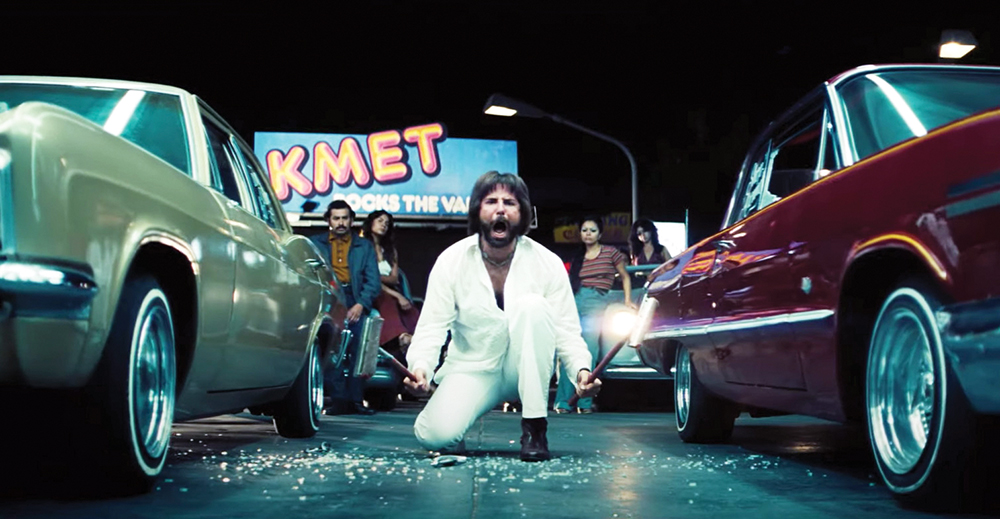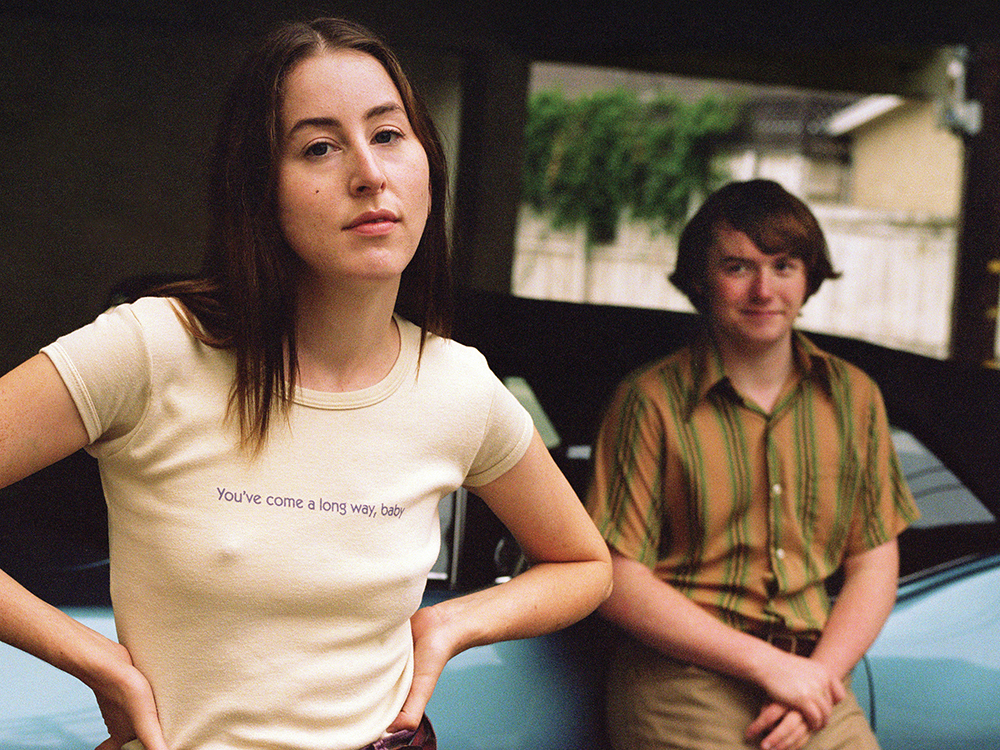The San Fernando Valley is a storied location in film history. Located on the other side of the ridge where the Hollywood sign greets visitors, it’s where you’ll find Mulholland Drive, Universal Studios, and North Hollywood High School, which educated people like Chuck Jones, John Williams, and Susan Sontag. Director Paul Thomas Anderson grew up in Studio City, the Valley neighborhood that sprung up around CBS’s facilities in the 1950s; his father Ernie hosted late night horror films on local television. Anderson’s breakout film, Boogie Nights, revolved around one of the Valley’s most prolific exports — pornography. The follow-up Magnolia applied Robert Altman’s kaleidoscopic storytelling approach to the surreal mix of inhabitants the Valley attracts.
Licorice Pizza, Anderson’s latest, is named for a now-defunct record store which was a Valley landmark in the 1970s. It’s loosely based on stories Anderson heard from Gary Goetzman, a film producer and Valley raconteur.
When we first meet Gary Valentine (Cooper Hoffman), he’s a child actor with a bustling career in commercials and a co-starring slot in a regular variety show with Lucy Doolittle (Christine Ebersole), a not-very-disguised stand-in for Lucille Ball. But at 15, Gary is getting long in the tooth for a child actor, and he knows it. As he’s searching for a new hustle, he finds Alana Kane (Alana Haim), a 25-year-old photographer’s assistant, coordinating high school picture day. From the get-go, we see Gary’s almost supernatural charm in action, as he brazenly hits on Alana in front of the entire freshman class. Naturally, Alana dismisses him as just a kid. But later that evening, for reasons she doesn’t understand, she finds herself meeting Gary for dinner at his favorite restaurant, an industry hangout called Tail O’ The Cock. When Gary decides to pivot from acting to selling waterbeds, Alana is along for the ride. The world they navigate together as a prickly pair of partners combines the tarnished glamor of Hollywood with teenage high jinks and street-level hucksterism.

Anderson’s greatest strength has always been character development, and Licorice Pizza is a prime example. Cooper Hoffman, son of the late Philip Seymour Hoffman, plays Gary as a force of nature. He has an unerring business sense (his mother actually works for him) and projects self-confidence beyond his years. Hoffman lets Gary’s secret teenage insecurities leak out around the edges just enough to keep him human. Haim, a real-life rock star and first-time actor, convincingly plays Alana as a sheltered young adult who has yet to escape her conservative Jewish home life. She thrills to the adventures Gary takes her on, while brushing off his occasional clumsy advance. Together, they drift from one strange encounter to another. Sean Penn and Tom Waits have memorable cameos as an actor-director combo who spontaneously decide to recreate a flaming motorcycle stunt on a golf course while boozing at the Cock. Later, Gary and Alana narrowly escape death at the hands of Jon Peters (a scarily intense Bradley Cooper), a real-life hairdresser turned film producer whose biggest claim to fame was dating Barbra Streisand.
The director of Boogie Nights is no stranger to problematic sexual relationships, but there are no porn-y vibes here. Anderson handles the 10-year gulf in his stars’ ages with a deft touch, using it to create a simmering background tension as his cinematography ravishes the sun-drenched SoCal suburbs. They keep it platonic, even though neither of them knows what the hell they’re doing together. As the film progresses, it becomes evident that they both fill in the gaps in the other’s personality. Even in the final act, when Gary pivots to opening a pinball arcade and Alana pursues a hunky politician, they profess to hate each other but can’t quite bring themselves to make a clean break.
The meandering Licorice Pizza lacks the gravitas of Anderson’s There Will Be Blood and can’t approach the spooky depths of Inherent Vice. But there’s something about this film’s Altman-esque alchemy that just feels good. In the sunny Valley of the 1970s, Gary would tell you, “If it feels good, go with it.”
